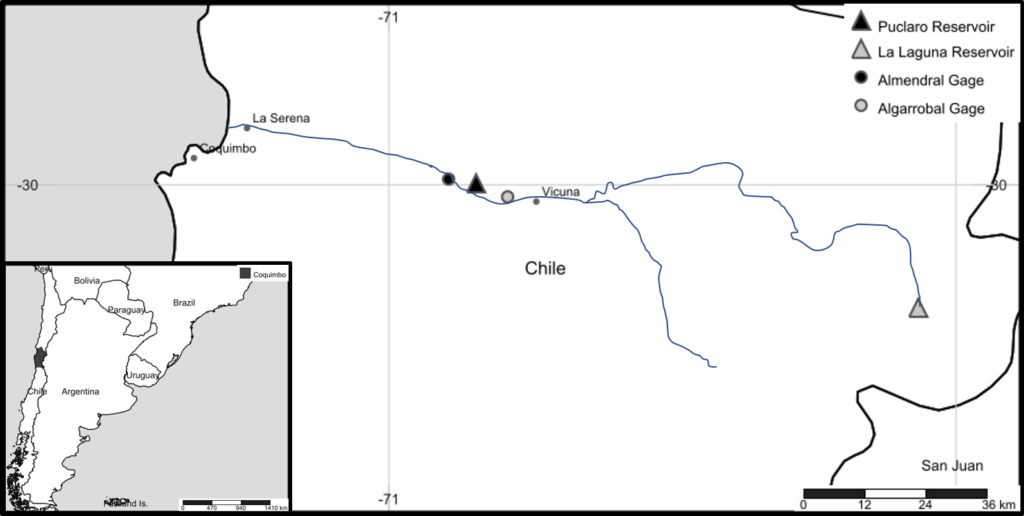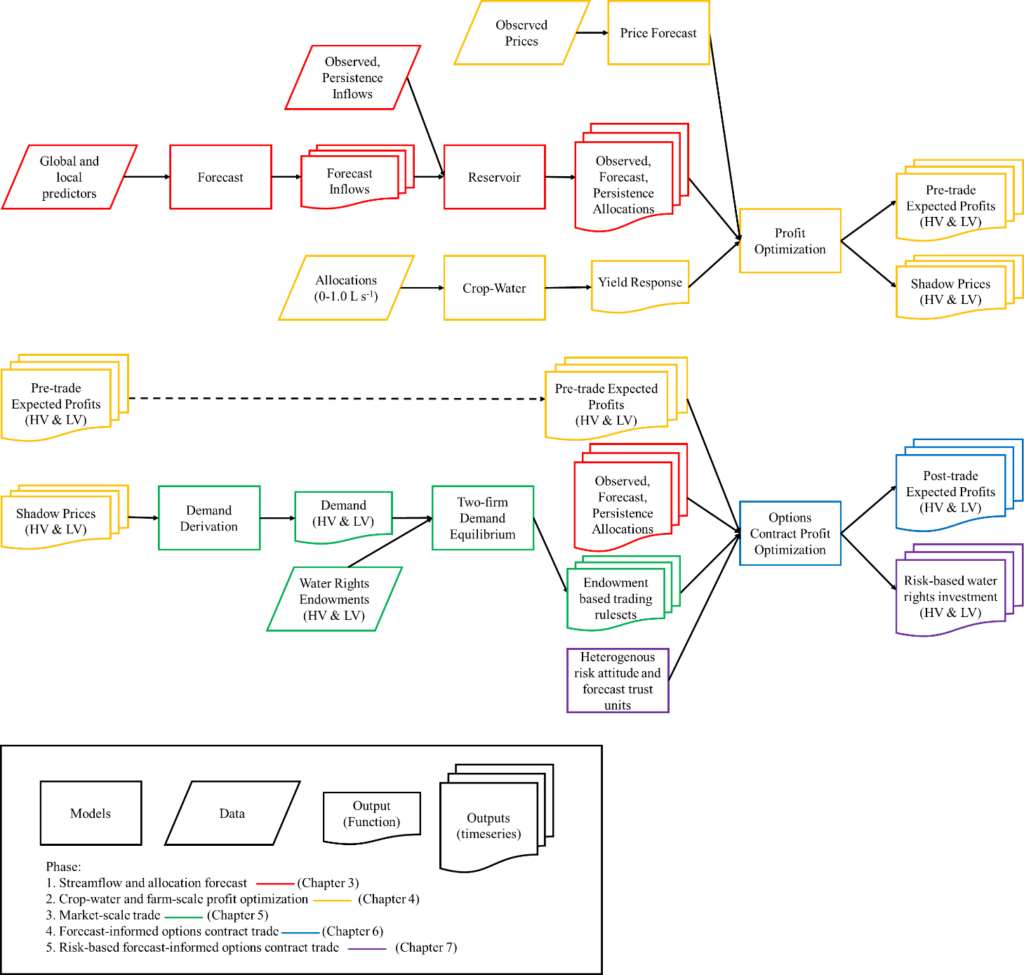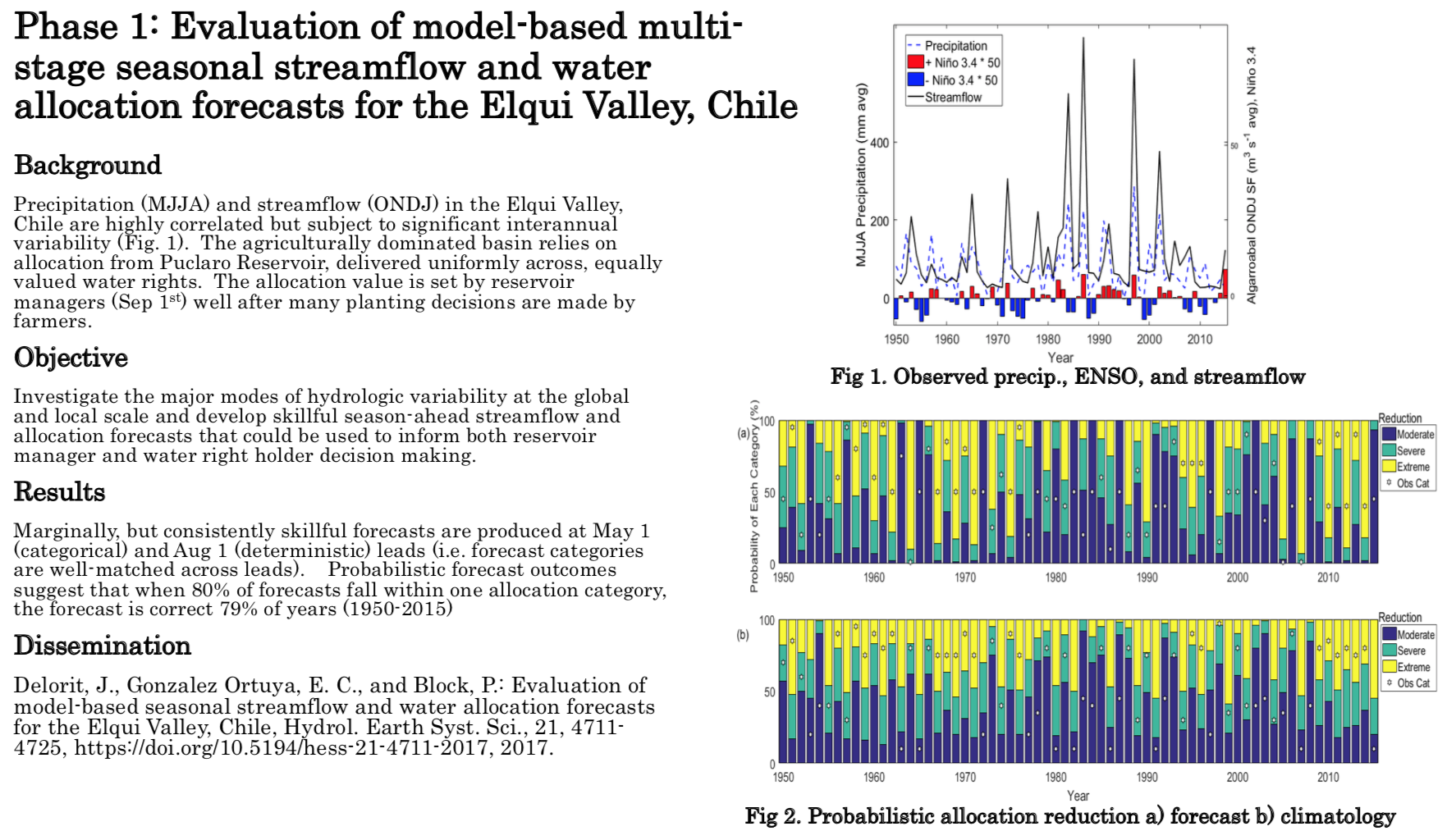Award Period: 2015 – 2018
To balance sustainable and productive water resource utilization, and address uncertainty in both the complex natural and human-managed components of water systems, interdisciplinary approaches must be taken. One globally relevant aspect of coupled natural-human water system interaction occurs at the nexus of food production and water. Investigating the linkages between uncertain hydrology and mitigative interventions available to agricultural producers is essential to promote hydrologically sensitive, efficient water systems.
Addressing hydrologic variability and describing how farmers might act to mitigate against undesirable outcomes (e.g. water scarcity reduces yield production and therefore profit) requires timely delivery of skillful information with which decisions can be made.
Farmers make many planting decisions and accompanying investments, pre-season. Thus, skillful season-ahead forecasts may provide farmers with an advanced indication of expected hydrologic conditions. However, hydrologic forecasts, expressed in terms expected precipitation or streamflow (where irrigated agriculture is relevant), may present limited direct utility to farmers. Translating these forecasts, such that forecast information is tailored for implementation, may be necessary to promote forecast uptake and implementation by farmers.
This research uses a case study to develop and demonstrate a comprehensive framework for systematically addressing water system uncertainty, proposing rapidly adoptable, collaborative actions farmers may take to ensure long-term production and profit, while preserving water resource sustainability.
Figure 1. Location of Elqui Valley, Coquimbo Region, Chile
In the Elqui Valley, Chile where an active temporary, neo-liberal water market exists which allows for transfers to occur between water rights holders, predominantly engaged in irrigated agriculture, with limited institutional barriers. The temporary market is informal, and as such lacks a price revealing mechanism which results in mispricing. Here a five-phase modelling approach is used to:
- Produce multi-stage season-ahead per-water right allocation forecasts, which are translated from forecasts of reservoir inflow by and allocation model.
- Derive an agro-economic optimization framework that produces agricultural user demand for water and expected farm-scale profits.
- Develop a demand-based water trade model that promotes market transparency and reveals the potential for water market-decision rules are obtained which guide water transactions between two theoretical growers’ cooperatives (high and low value crop farmers).
- Link multi-stage allocation and crop market price forecasts with an option contracts water transfer framework to determine the value of season-ahead forecast information against climatological allocation and price benchmarks.
Apply a heterogenous farmer risk attitude, forecast trust framework, and many hydrologic regimes to option contracts-based water trading to determine the robustness of inter-cooperative water-trading against alternative transfer options available to farmers.
Figure 2. Phased, per-water right allocation forecast production and translation framework. Note that colors correspond to framework phase.
Key Findings:
- The appeal of marginally skillful seasonal forecasts may improve through transformation, provided the information is tailored to end users.
- Multi-stage forecasts, with mixed delivery (categorical→deterministic) are inter-stage skill consistency may allow for forecast lead extension without significant sacrifice of information value
- Adoption of transparent, forecast-informed demand-based water trade rulesets by growers’ cooperatives may improve water-market scale economic efficiency
Summary of Current Research




